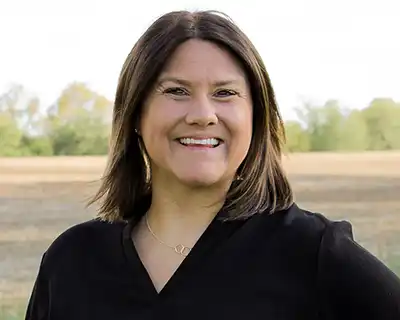How time flies when you’re…. busy working to support farmers and mitigate climate change!
It has been a full year since USDA announced the Climate-Smart Commodities Partnerships program. Last week, I was fortunate to join USDA Secretary Thomas Vilsack at Gwenyn Hill Farm in Waukesha County, Wis., for an update on the program and the role USDA sees it playing in harnessing agriculture’s potential as a climate solution.

The Secretary kicked off with some updates on the state of the program. He noted that 90% of the initial 141 projects have signed contracts and are beginning to enroll farmers, with about 1 million acres currently enrolled with expectations to reach about 25 million acres.
For me, what was more meaningful than this progress report was the Secretary’s context about the significance and importance of the program into the broader U.S. agriculture economy and the country.
I was struck by a few stark facts: since 2017, the U.S. has lost 16,700 farms and 6.9 million production acres. Farms with gross revenues more than $500,000 represent 7.5% of American farms, and they generated 89% of farm income. Market forces and ag policy have driven relentless consolidation of farmland. For a small or medium-sized producer to thrive – providing for their family, but also protecting rural economies, securing open space, and feeding a growing population – a different path has to be created.
The vision that the Secretary laid out was clear – climate-smart commodities as the gateway to diversified, specialized income streams for these family farms. Our host venue was a great example of both diversified revenue and the impact and importance that small farms have on stabilizing communities.
“Almost all of our products are directly marketed to people here is Waukesha County. We have milled grains, fresh produce through our CSA, and we have grass-fed meats through our farmstand. We’re educating our community and helping them value having a resource like a farm in their community,” said Linda Halley, general manager of the 430-acre diversified operation.
Of course, to fulfill this vision, the climate-smart projects have to do more than just enroll acres – they have to truly lay the foundation for producers to benefit from climate-smart, diversified operations. There’s no one approach, but for any approach to work, it has to start with the producer in mind. You can see more of my comments on the diversity of producer needs, data as the currency as the climate-smart economy and more in the panel discussion.
In the meantime, ping me to share your view of the future of small and mid-sized farms. What else can agriculture do to contribute to the prosperity of America’s producers and the communities they serve?You can reach me at acole@farmjournal.com.



